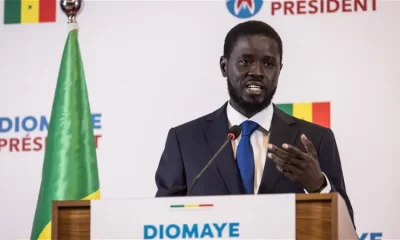Economic Issues
An Overhaul Of The Nigerian Construction Industry – From Regulatory Bodies To Property Developer -By Adeola Omojuyigbe
With the identification of new forms of corruption, innovative frameworks can be formulated in a more specific manner to tackle corruption from all angles, thereby leading to the reduction of these practices in the short term and hopefully eradicating their existence in the long-term.

Businesses in just about every industry faces the risk of corruption in one form or another – from bribery to extortion and embezzlement to cronyism.
Corrupt practices within the systems of land administration and management stems from prominent Developers allegedly bribing building regulatory authorities to influence approvals or the use of substandard materials or unqualified contractors to alleviate the dent caused by the exorbitant amount paid to purchase the land.
These practices can have serious consequences on financial health and reputations. It can impact procurement of building materials and the integrity of the building furthermore reducing the economic returns and shortening the lifespan of the buildings or a collapse which eventually claims human lives.
Regulating this sector has become necessary, but simplicity, transparency, enforcement, and a focus on the outcomes of poor construction are likely to have a larger impact than voluminous but poorly enforced regulation of the construction industry.
Anticorruption measures developed to check corruption comes in form of ethical code, whistleblowing mechanism, comprehensive rules and regulations, harsh punishment, or penalties such as sanction and/or imprisonment), amongst other measures.
To overcome these shortcomings in the regulatory environment, the key is to increase transparency. One of the most common tools used by governments to monitor public expenditures are randomized audits of public funds. In an environment with high level of asymmetric information, regular monitoring and other similar transparency initiatives can prove valuable. Thus, understanding the impact these audits can have in the construction industry has potentially significant policy implications for economic growth.
With the identification of new forms of corruption, innovative frameworks can be formulated in a more specific manner to tackle corruption from all angles, thereby leading to the reduction of these practices in the short term and hopefully eradicating their existence in the long-term.




















